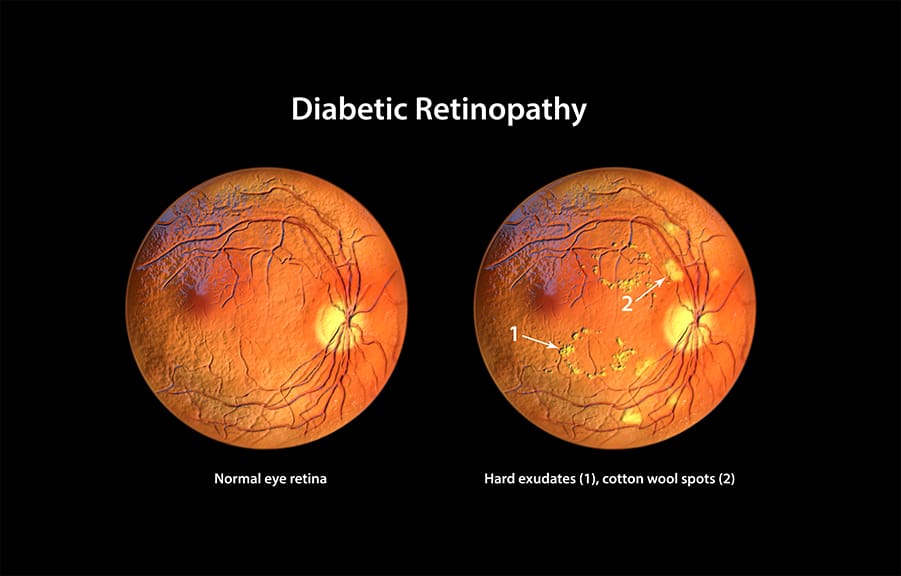
By Akers Editorial
Ask The Expert: Eye Care

Expert: Claudio A. Ferreira, MD
Retina/Vitreous Surgery • Macular Disorders Diabetic Eye Care • Lasers
What is diabetic retinopathy?
Diabetic retinopathy is a diabetes complication that affects the eye by decreasing blood oxygenation to the retina, the light sensitive tissue of the eye. The longer you have diabetes, type I or type II, the greater your risk of developing diabetic retinopathy.
When blood sugar is high for an extended period of time, the lens of the eye can thicken and impede vision, which is why patients with diabetic retinopathy may find their vision fluctuates from day to day. Other symptoms of diabetic retinopathy are, but not limited to, dark spots in the field of vision or blurred vision. At times, some patients experience no symptoms at all.
There are two types of diabetic retinopathy: non-proliferative and proliferative. Non-proliferative diabetes can begin as mild and progress through moderate to severe. At the severe stage it becomes proliferative and indicates the growth of abnormal blood vessels in the retina called neovascularization. If not treated, neovascularization can lead to vitreous hemorrhaging, which is bleeding in the back of the eye, retinal detachment, glaucoma and permanent vision loss.
Treatment for diabetic retinopathy in the early stages can include injections of medication in the eye or laser therapy. Once advanced to proliferative diabetic retinopathy, surgery could be discussed to prevent complete blindness.
You cannot always prevent diabetic retinopathy, and family history does play a role. However, to reduce your risk, work with your Primary Care Physician to create a plan to maintain your hemoglobin A1C around 6.5%; keep your blood pressure and cholesterol within healthy ranges; and if you smoke, work with a specialist to find a way to quit.
It is very important to visit a retina specialist once you are diagnosed with diabetes to allow your specialist to create a baseline. If you wait until you experience symptoms, vision loss may be irreversible.









































